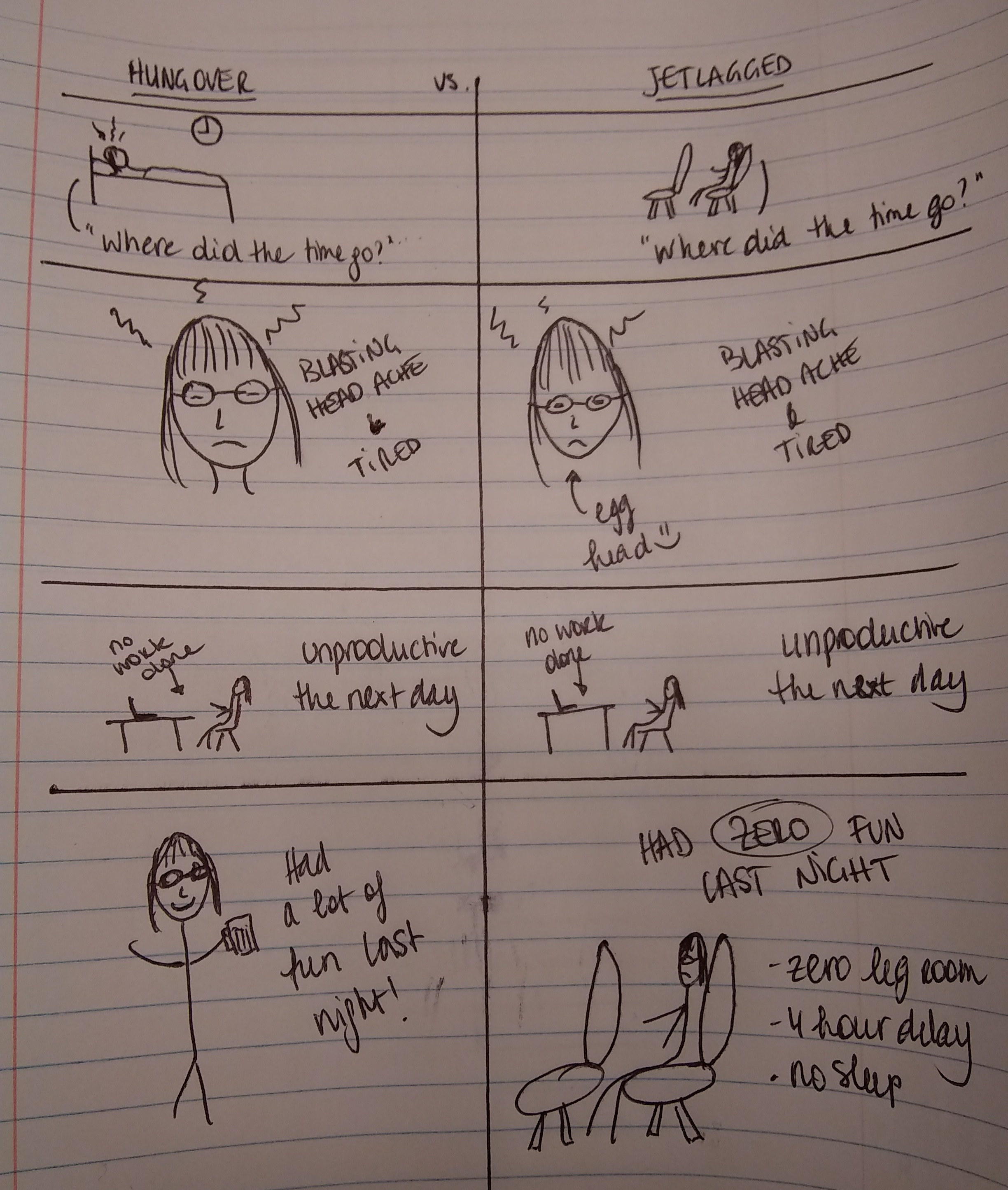I’ve traveled quite a bit in my life. As a young girl, it wouldn’t bother me much. I would be able to sleep on the plane, or if I didn’t, I would bounce back from that sleep deprivation easily. But now, the combination of nearing my 30s (oh no!), being tall and therefore very uncomfortable in a plane, and general annoyance towards air travel, have made me start to feel the lags. Unfortunately.
Why do we get jet lagged?
Jet lag occurs due to disruption of the circadian rhythm of your body after you have traveled a long distance from east-to-west or west-to-east. The normal circadian rhythm – your built-in sleep-wake cycle – is a little over 24 hours long, pretty much tuned to the normal duration of the earth spinning around its axis. By traveling rapidly along the east-west line (or the other way around), you essentially cut a normal day short, or extend it, unnaturally. And that messes up your rhythm and consequentially some of your functioning. Often, this is also paired with fatigue, because sleeping on a plane is very uncomfortable (even if you’re not 1m84).
Common symptoms include trouble falling asleep or waking up, headaches, irritability, problems/disruption with your normal digestion and annoyance at air travel.
East by West
For me, flying west is always easier than flying east. Flying west feels like extending my day with a few hours, I just go to sleep really late. But flying east is like having two very short days with a bad night in between. [edited – see below]
However, last week was the exception. I flew west, a 6-hour flight with a three-hour time change. Unfortunately, there was also a 4-hour delay. As a result, I didn’t get home until 3 am. The next day, I felt miserable: sleep-deprived and annoyed, I had zero mental capacity to concentrate. Actually, I felt like I’d had a great night out partying – except that I hadn’t.
How to avoid a jet lag
It’s not really possible to avoid. The internet recommends only sleeping on the plane if it fits within the destination’s sleep-wake schedule. Doesn’t help me much; I find it very hard to sleep on planes [Side note: did you know that the background noise in a plane is on average 85 dB? That’s about the same noise as a food blender, and it’s recommended not to be exposed to this level of noise for more than 8 hours a day]. Professional athletes use light therapy, using special glasses that light up according to the new circadian schedule, to reduce their jet lag.
Definitely, it helps to stay hydrated and limit light exposure. Though that seems to be valid advice in general (you know, stay hydrated during the day and limit screen time to sleep better!).
You can also just fly north-south instead. No change in time zones; no jet lag! Unfortunately, all my family lives eastwards.
Hungover, without the fun*
So, if you ever want to feel hungover without actually having that one drink too many the day before, go travel by plane! *

*Just to make it clear: drink responsibly! You can have fun without having that one drink too many (and the headache the day after), I promise!
**There are a whole lot of reasons not to travel by plane, mostly the impact on the climate and the environment, which are a lot better than “not getting a jet lag”. However, I realize that it is hypocritical for me to comment on the environmental impact of plane travel when I resort to plane travel so often. I wrote this post because I felt hungover after a flight and had a badly-drawn doodle about it in mind. That’s all.
[Edit: initially said: For me, flying east is always easier than flying west. Flying east feels like extending my day with a few hours, I just go to sleep really late. But flying west is like having two very short days with a bad night in between. It seems that mixing up east and west is another symptom of jet lag!]

